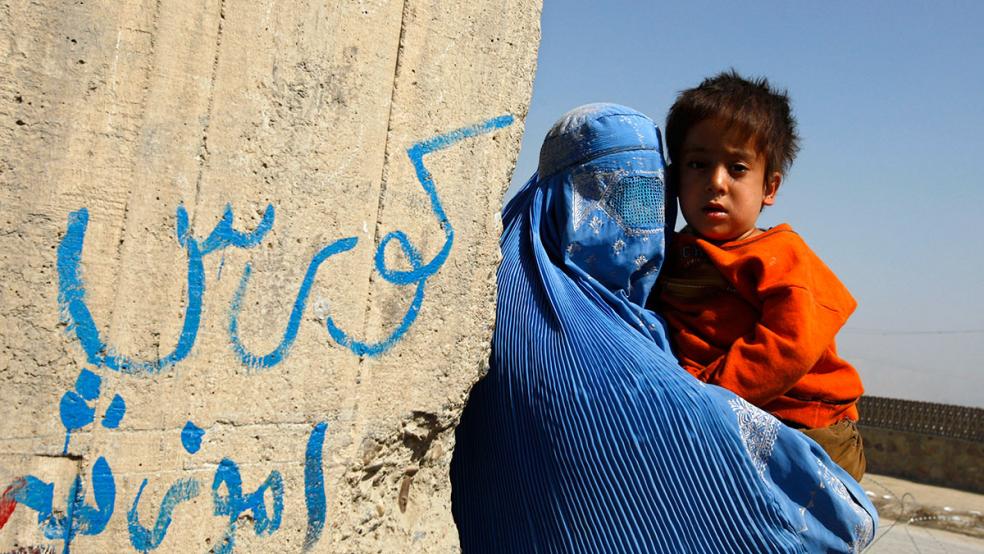U.S. nation building and humanitarian assistance in Iraq and Afghanistan has been an enormously costly and frequently futile exercise over the past decade.
For example, the State Department spent $4 billion to help rebuild war-torn Afghanistan. More than half of that went to a single company, DynCorp, for programs to train and equip the Afghan National Police and counter-narcotics forces and to provide bodyguards for Afghanistan’s president, Hamid Karzai.
A recent audit by the Special Inspector General for Afghanistan (SIGAR) concluded that precious little was achieved for all that spending, and that in the case of narcotics, things actually got worse, with opium production reaching record highs in 2013. That same year, DynCorp was found to have done a subpar job on a construction project for the Afghan National Army in Kunduz province.
Related: U.S. Failed to Stop a Record High Afghan Opium Crop
Now The Washington Post has disclosed that a non-profit group that was paid $1.8 billion by the U.S. Agency for International Development to undertake agricultural and community clean-up programs in war-torn Afghanistan and Iraq during the past decade showered its top officials with outsized salaries and bonuses.
International Relief and Development, ostensibly a non-profit humanitarian organization, lavished salaries and bonuses on their top executives akin to those provided by many Fortune 500 corporations, according to the Post.
Among the chief beneficiaries: Arthur B. Keys, a minister and the president and CEO of the organization, and his wife, Jasna Basaric-Keys, who together earned $4.4 million in salary and bonuses between 2008 and 2012. Keys, his wife and their daughter created IRD as a non-profit entity in 1998 after working on a number of church-related relief efforts and social justice projects. The organization gradually mushroomed thanks to 26 cooperative agreements or contracts with USAID, the foreign aid and assistance arm of the government.
Related: Afghanistan Slaps U.S. With $1 Billion Tax Bill
Others who had previously worked at USAID before coming aboard the Keys’ organization saw their compensation skyrocket as a result of the move.
Alonzo Fulgham, a former acting director of AID, saw his salary rise from $199,418 a year as a government official to $330,000 as vice president of IRD, according to The Post. Jeffrey Grieco made $185,000 as the top public affairs official at USAID, but now he is pulling down $225,000 a year as IRD’s public affairs chief.
The organization has also handed out handsome bonuses. Grieco received $56,250 in 2010. Between 2008 and 2012, Jasna Basaric-Keys collected $285,000 and Arthur Keys received $567,007 in bonuses. The Keys’ daughter received $27,769 in bonuses.
In all, 38 IRD employees received more than $3.4 million in bonuses during the same period, according to the Northern Virginia-based company’s tax filings.
“This is not Wall Street,” Doug White, an expert on non-profit entities who teaches at Columbia University told The Post. “This is an organization that is supposed to be helping people, not helping themselves.”
Related: Billions Spent in Afghanistan with No Game Plan
Arthur Keys in a statement issued today defended the salaries and bonuses, saying they are designed to attract and retain highly talented employees, some of whom are required to work in hazardous or challenging zones.
“IRD stands by our work and our mission to reduce the suffering of the world’s most vulnerable groups and provide the tools and resources needed to increase their self-sufficiency,” he said. “We strive to alleviate immediate suffering, but also to implement programs that enable communities to solve problems on their own and build a secure and prosperous future.”
The Post reported that for years, IRD has been sparring with government auditors over its performance in the field. For instance, auditors reported that one IRD program in Iraq was “highly vulnerable to fraud and exploitation” and that the organization inflated the impact of its programs.
“In every project, IRD's experienced and dedicated staff works to achieve the clearly stated goals of its donors, public and private,” Keys said today. “We welcome scrutiny of our programs and are committed to the highest standards of performance and accountability.”
Top Reads from The Fiscal Times:





